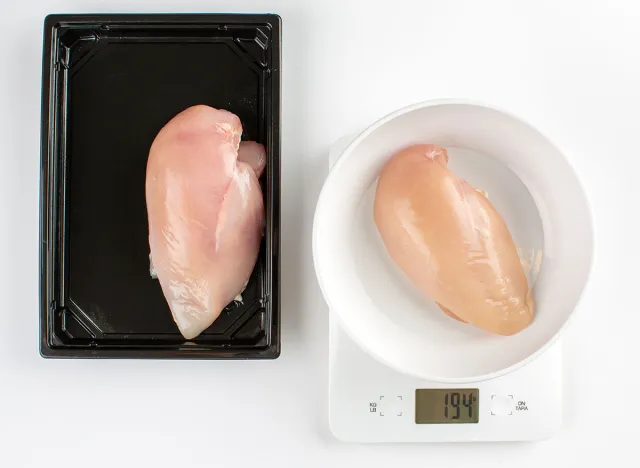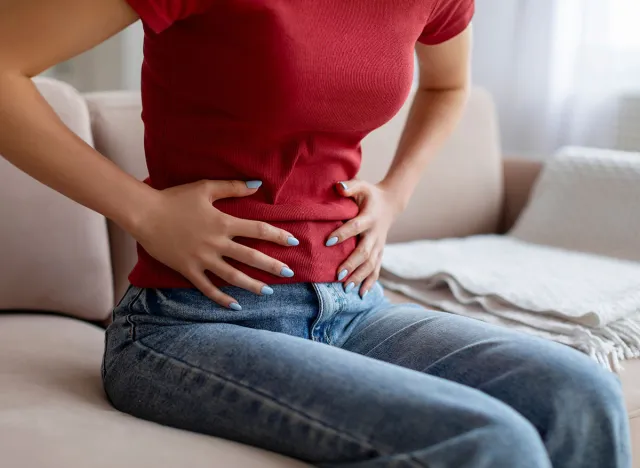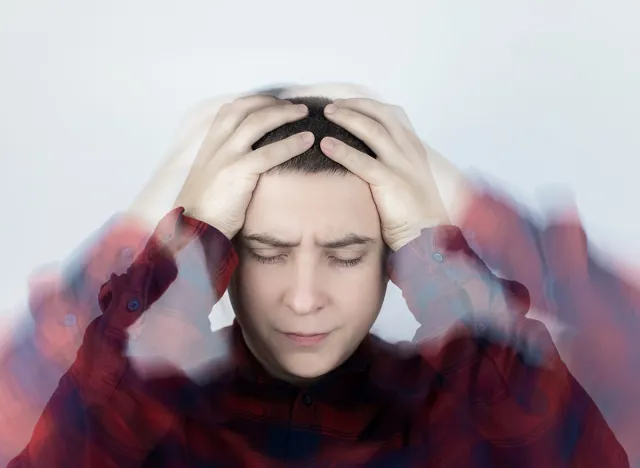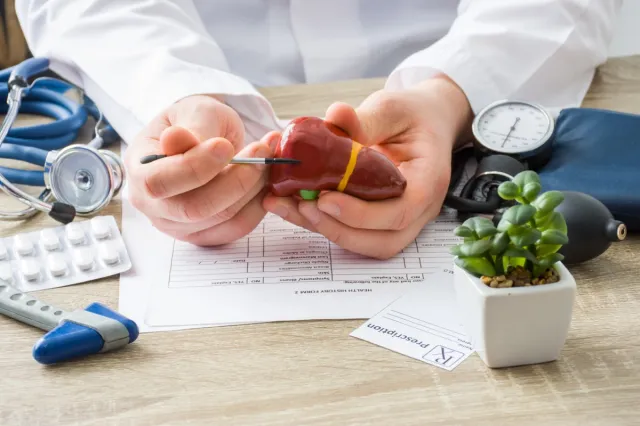12 Signs You're Eating Too Much Protein

We all know protein is essential for health and wellness—but can there be too much protein in your diet? "As with most things in life, there can be too much of a good thing and if you eat too much protein, there may be a price to pay," says Harvard Health. "For example, people that eat very high protein diets have a higher risk of kidney stones. Also a high protein diet that contains lots of red meat and higher amounts of saturated fat might lead to a higher risk of heart disease and colon cancer, while another high protein diet rich in plant-based proteins may not carry similar risks." Here are signs you might be eating too much protein, according to experts.
How Much Protein?

So how much protein is right for you? "Depending on your overall health and how active you are, protein should make up about 10% to 35% of your daily calories," Kate Patton, RD, LD, tells the Cleveland Clinic. "We suggest following the standard rule of 0.8 grams of protein per 1 kilogram of body weight… If you're physically active, it's OK for your intake to be a little bit higher to help with muscle repair and gain,"
Dehydration

High-protein diets can lead to excessive urination, which can lead to dehydration. If urine is foamy or bubbly, seek medical attention as it could be linked to kidney issues.
Bad Breath

Too much protein can show on your breath. "Eating too much protein, especially without a balanced amount of carbs, can cause ketosis, a metabolic state that happens when your body starts burning fat for energy," says the Cleveland Clinic. "'Keto breath,' as it's called, is one of the side effects."
Kidney Issues

Too much protein can put too much pressure on the kidneys, causing kidney stones. It can also make you thirsty, which means you drink more water. "That's hard on the kidneys, too," Corey Tolbert, RD, LD, tells Piedmont Health. "If your kidneys are always in overdrive, that causes problems."
Heart Disease

"Extra protein intake also can lead to elevated blood lipids and heart disease because many high-protein foods you eat are high in total and saturated fat," Kristi Wempen, RDN, tells Mayo Clinic Health System. "Extra protein intake, which can tax the kidneys, poses an additional risk to people predisposed to kidney disease."
Not Enough Nutrients

Too much protein could be linked to nutrient deficiencies. "A diet overly focused on protein might neglect other essential nutrients like carbohydrates and fats," according to Chester County Hospital. "Carbohydrates, for example, are crucial for providing a faster energy source to the body, especially during physical activities. If you're overloading on protein, you may be neglecting your carb intake, leading to less energy and fewer benefits."
Headaches

Eating too much protein can cause headaches. "Some high-protein diets limit carbs so much that you might not get enough nutrients or fiber," Katherine Zeratsky, RD, LD, tells the Mayo Clinic. "This can cause problems such as bad breath, headache and constipation."
Digestive Issues

Too much protein is hard on your gut. "High protein intake can lead to constipation, bloating and discomfort," according to Chester County Hospital. "This is because protein-rich foods often lack the fiber found in foods like fruits, vegetables and whole grains, which are essential for maintaining a healthy digestive system."
Dizziness

Eating too much protein can cause dizziness due to lack of carbohydrates. This may cause "fatigue, excessive thirst and dizziness," Dr Seth Rankin, founder of London Doctors Clinic, tells Cosmopolitan.
Fatigue

A high-protein diet may cause fatigue. "Some researchers believe that people feel tired after eating because their body's producing more serotonin," Julia Zumpano, RD, LD, tells the Cleveland Clinic. "Serotonin is the chemical that regulates mood and sleep cycles. Oftentimes, when you're eating a meal rich in carbohydrates and protein, you may feel sleepier because you have an uptake of tryptophan from the protein and then an increase of serotonin."
Liver Stress

Too much protein can negatively impact live health. Ketosis "can put a lot of stress onto the liver," Dr Rankin says. "The liver is an essential organ that detoxifies chemicals, and purifies your blood of toxins. Therefore, it is very important that we do not stress the liver and allow it to function properly."
Mental Health

Too much protein could impact mental health, experts say. "Scientists are researching if low-carb diets like keto might also impact mental health," according to Chester County Hospital. "Some researchers also have a theory that carbs are responsible for releasing serotonin, which boosts your mood, so eating a moderate amount of carbs may reduce the risk of anxiety and depression." And if you enjoyed this article, take advantage of these 15 Quick Ways to Lose Body Fat Percentage in a Week.




